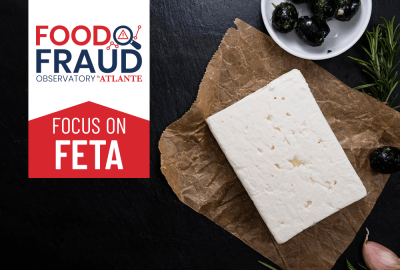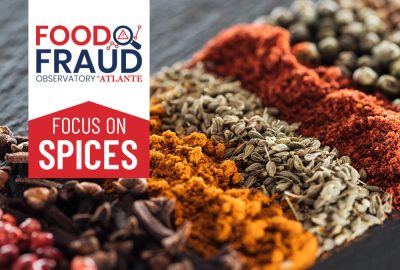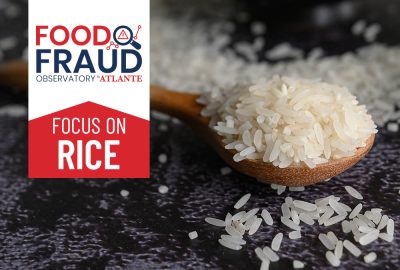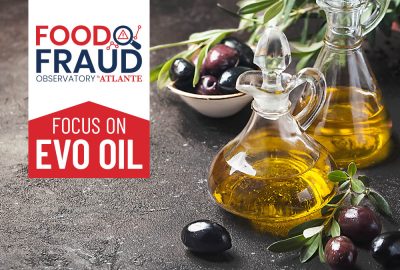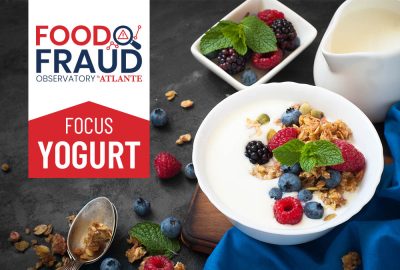Atlante
News
Atlante Food Fraud Observatory: Focus on Cheese
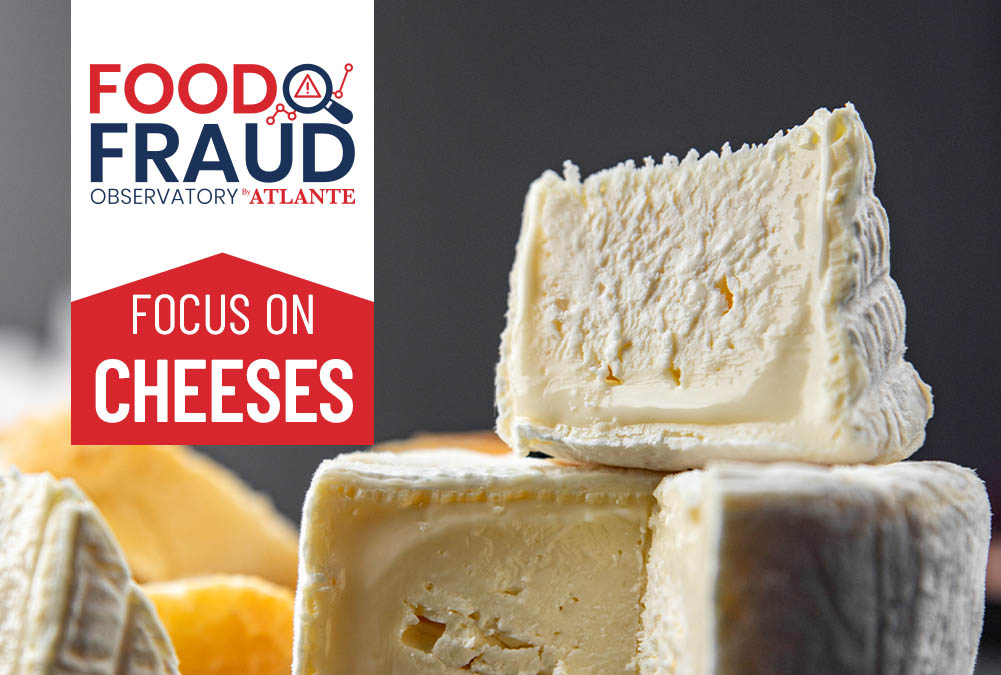
13 August 2025
The Atlante Food Fraud Observatory focuses on risks associated with products and categories. The goal? To raise awareness and ensure that businesses can work with greater responsibility.
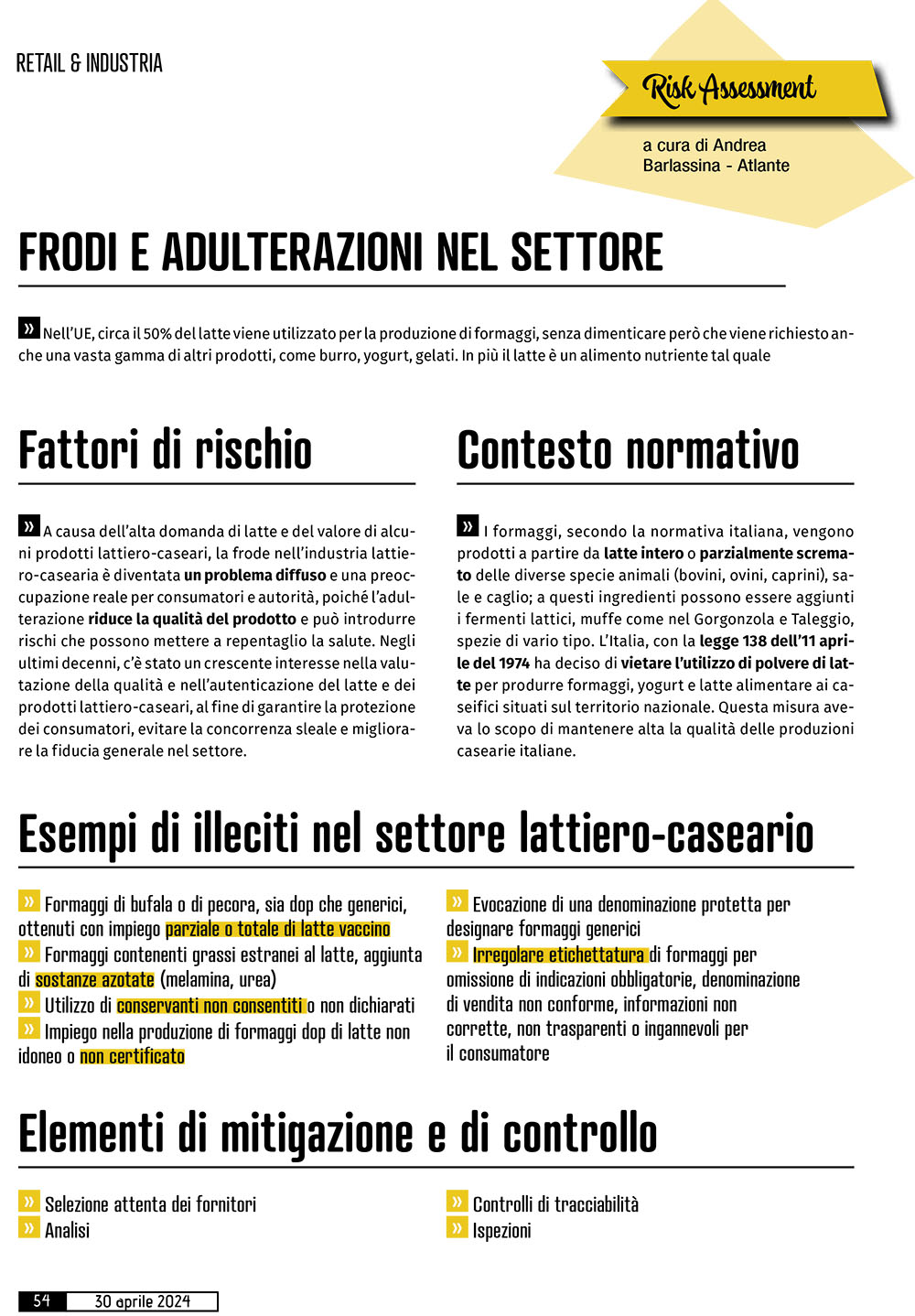
Context
Milk serves as a highly nutritious staple in the diets of specific demographics, including infants, children, the elderly, and pregnant women. In addition to these groups, milk is consumed worldwide by a substantial proportion of the population, both on its own and in the form of dairy products.
Europe is the largest producer of cow’s milk (32.7 % of global production in 2016), with the majority produced in the European Union (EU). The dairy sector is hugely important to the EU as its value (close to €55 billion) accounts for approximately 15% of the EU’s total agricultural output (2011-2013 average). Germany and France are the top producers, followed by the UK, the Netherlands, Poland, and Italy.
The EU dairy industry is renowned for the quality of its products, and is considered an important player in the global dairy market, as well as a major exporter of many dairy products, especially cheese.
Approximately 50% of EU milk is used for cheese production, though a wide range of other products, such as butter, yoghurt, and ice cream, are also produced.
According to Italian law, cheeses are made from whole or semi-skimmed milk sourced from various animal species, including cattle, sheep, and goats, along with salt and rennet. Additionally, milk enzymes, moulds (as found in Gorgonzola and Taleggio), and a variety of spices may be incorporated into these cheeses.
In Italy, Law 138 of 11 April 1974 prohibited the use of milk powder for the production of cheese, yoghurt, and drinking milk within the country. This measure was enacted with the aim to preserve the high quality of Italian dairy production.
The dairy industry faces a pervasive fraud issue due to the high demand for milk and the high value of certain dairy products. This raises significant concerns for consumers and authorities alike, as the adulteration of dairy products not only reduces their quality, but also poses potential health risks.
In recent decades, there has been a surge in interest regarding quality assessment and authentication procedures for milk and dairy products to safeguard consumers, mitigate unfair competition among producers, and enhance trust and confidence within the sector as a whole.
Examples of offences in the dairy sector
- Cheeses made from buffalo or sheep’s milk, whether they are labelled as PDO or not, may be partially or entirely made using cow’s milk
- Cheeses containing fat other than milk fat, or the addition of nitrogenous substances (melamine, urea)
- Use of unauthorised or undeclared preservatives
- Use of unfit or uncertified milk in the production of PDO cheeses
- Use of unauthorised or undeclared preservatives
- Using a protected designation to refer to generic cheeses
- Incorrectly labelling cheeses by omitting required details, using inaccurate sales terms, providing incorrect, misleading, or fraudulent information to consumers.
Factors to keep under control
- ‘Fast’ markets
- E-commerce
- New consumption/behaviour patterns (e.g., veganism/vegetarianism)
- New production technologies.
Mitigating and control elements
- Careful supplier selection
- Analysis
- Traceability checks
- Inspections.
Impegno e Collaborazione: L’iniziativa di Atlante per Combattere le Frodi Alimentari
Atlante ha da sempre una particolare attenzione per i rischi legati alla frode alimentare. Già lo scorso luglio 2023, Atlante ha avviato il progetto di Food Fraud Risk Assessment: un solido piano dedicato alla valutazione dei rischi connessi alla frode alimentare.
All’interno di questo importante piano si inserisce la collaborazione con GDO Week per una rubrica mensile dedicata all’antifrode alimentare. Gli articoli usciranno a cura dell’Osservatorio Food Fraud di Atlante con la firma di Enrico Santi, Quality Assurance Manager.
Ogni articolo offrirà approfondimenti, analisi e best practices per affrontare la complessità delle frodi alimentari.
Questa sinergia evidenzia il costante impegno di Atlante nel mettere a disposizione delle principali catene italiane e dei suoi partner le sue conoscenze e le sue strategie più efficaci per garantire la genuinità e l’integrità degli alimenti che finiscono sulle nostre tavole.

